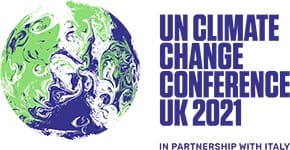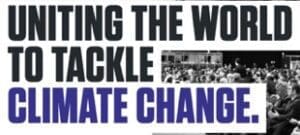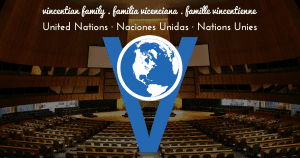 The United Nations Annual Climate Change Conference is called COP – Conference of Parties. Parties are signatories to the United Nations Framework Convention on Climate Change (UNFCCC), a treaty signed by 197 Parties (196 countries and EU) in 1994. COP26 is hosted by UK in partnership with Italy in Glasgow from October 31 – November 12, 2021. The summit, which will see more 190 world leaders, representatives of civil society and businesses will focus on “Uniting the World to Tackle Climate Change,” for the climate crisis that is unfolding around the world requires not just ambitious targets and commitments, but urgent action. In 2015, at COP21 every country agreed to work together to limit global warming to 1.5 degree-Celsius and committed to make national plans – Nationally Determined Contributions (NDCs’) to reduce their emissions. They also committed to communicate and update their targets every five years to reflect their highest possible ambition and progression. 2020 marked the first of these five-year cycles and all countries are expected to present their updated NDCs.
The United Nations Annual Climate Change Conference is called COP – Conference of Parties. Parties are signatories to the United Nations Framework Convention on Climate Change (UNFCCC), a treaty signed by 197 Parties (196 countries and EU) in 1994. COP26 is hosted by UK in partnership with Italy in Glasgow from October 31 – November 12, 2021. The summit, which will see more 190 world leaders, representatives of civil society and businesses will focus on “Uniting the World to Tackle Climate Change,” for the climate crisis that is unfolding around the world requires not just ambitious targets and commitments, but urgent action. In 2015, at COP21 every country agreed to work together to limit global warming to 1.5 degree-Celsius and committed to make national plans – Nationally Determined Contributions (NDCs’) to reduce their emissions. They also committed to communicate and update their targets every five years to reflect their highest possible ambition and progression. 2020 marked the first of these five-year cycles and all countries are expected to present their updated NDCs.
Are we on track to limit global warming to 1.5 degrees? The answer is an emphatic no from the Intergovernmental Panel on Climate Change update on the physical science of climate change since 2013. In fact, they have issued a “Code red for humanity” – our planet is warming at the fastest rate in 2000 years. We should take this as a final warning or a wakeup call for urgent actions.
Here are some of the key messages from the report:
- Human influence has warmed the climate system – human activities are the main drivers of more frequent heatwaves, glaciers melting, ocean warming and acidification. Studies have shown that the Siberian heatwave in 2020 and extreme heat across Asia in 2016 are the results of humans burning fossil fuels
- The warming of recent decades is unprecedented over many thousands of years; and we are set to pass 1.5 degree Celsius by 2040. It leaves a narrow pathway to stabilizing temperatures. Drastic reductions in CO2 and other Greenhouse Gas emissions are needed to achieve net zero emissions by 2050.
- With further global warming, every region is expected to experience extreme changes. Climate models show that the Arctic is warming faster than other regions and that high latitudes in Northern Hemisphere are projected to warm by two to four times the level of global warming.
- We are closer to irreversible changes to the climate, often called tipping points. For example, forests could start to die as temperatures rise, becoming less able to absorb carbon dioxide, leading to further warming or the melting of Antarctic ice sheets could cause seal levels to rise more than a meter by 2100. A recent analysis showed that parts of Amazon are emitting more carbon than they absorb.
- Methane emissions are an important lever – methane levels are now higher than any point in the past 800,000 years and are well above the safe limits. Methane released from abandoned coal mines, farming and oil and gas operations are responsible for a quarter of global warming. A sharp reduction in methane can provide a short-term win, but most of the focus has been on CO2 net zero targets.
Why does limiting temperature rise to 1.5 degrees Celsius matter? At 2 degrees of global warming, there would be widespread and severe impacts on people and nature. A third of the world’s population would be regularly exposed to severe heat, leading to health problems and more heat-related deaths. Most of the water coral reefs would be destroyed, and the Artic sea ice would melt. At 1.5 degree Celsius, the impacts would be serious, but less severe – lower risks to food and water shortages, economic growth, and extinction of fewer species.
What needs to happen at COP26? Countries are being asked to come with ambitious 2030 emissions reductions targets that align with reaching net zero by the middle of the century and keep 1.5 degrees within reach. Updated targets are not sufficient, they must be translated into action.
Adapt to protect communities and natural habitats – since climate is already changing and will continue to change as we reduce emissions, countries need to protect and restore ecosystems, build defenses, put warning systems in place and make infrastructure and agriculture resilient to avoid loss of homes, livelihoods and lives. Climate change is an existential threat for millions of people living in Small Island States and other vulnerable areas.
Mobilize finance to realize the above goals. In order to deliver on the first two goals, developed countries must deliver on their promise made in 2009 to raise $100 billion in climate finance per year.
Challenges of climate change demands that we work together to deliver. Parties need to finalize the Paris Rulebook (rules needed to implement the Paris Agreement). They need to turn ambition into action by accelerating collaboration between governments, businesses and civil society.
COP26 is a golden opportunity for us to engage in advocacy to end the era of dependency on fossil fuels and to allow nature to heal. The unsustainable modes of consumption and production even in the midst of the ongoing COVID-19 pandemic indicates that greed is overtaking the need for solidarity to nurture the health of the people and planet. We should also focus on climate justice, for climate change is resulting in ‘triple injustice’ – hitting hardest the countries least responsible for climate change; disproportionately impacting the poor and vulnerable communities; and leaving a legacy of risks and hardships for young people and future generations. So, it is incumbent upon us to ensure that climate action directly address the injustices of climate change. Since climate change will threaten the enjoyment of basic human rights and freedoms of many, there is urgency to advocate for environmental rights. Environmental rights mean access to unspoiled natural resources that enable survival, including land, shelter, food, water and air. Nature based solutions are needed for the conservation of ecosystems and biological diversity are vital to climate mitigation and adaptation.
Get involved in COP26: In 2015, at the COP in Paris, governments formally recognized the need for everyone working together to face the challenge of climate change. Race to Zero is a UN Campaign to rally leadership and support from businesses, cities, regions, investors and universities to build a healthy, resilient, zero carbon economy. Non-state actors/civil society can join the Race to Resilience to take action to strengthen the resilience of people from vulnerable groups and communities to climate risks. Follow@COP26 on Twitter and Instagram for updates on how you can get involved.

Teresa Kotturan SCN
NGO Representative at the UN
Sisters of Charity Federation








Thank you Sister Teresa. An urgent and necessary message to all. We are all experiencing the effects of climate change.
Thanks a lot MaryAnn.